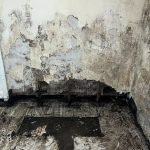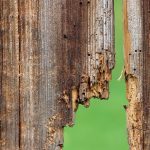
How a Moldy House Can Devalue Your Home
Mold. Just the word can inspire anxiety in even the most laid-back homeowner. Not only does mold affect your personal health and safety, but it can also directly impact the value of your property. Purchasing a house or a condominium is an investment, and to make sure it turns into a profitable one, avoiding mold should be at the top of your list of priorities.
Here are just a few reasons why, for your physical and financial health, you should be vigilant in avoiding mold in your home, and why you should eradicate it as soon as it appears.
Mold Removal Can Be Costly
The moment you notice the telltale evidence of mold in your home, you should immediately bring in professionals to investigate. Keep an eye out for these signs:
- Visible mold spores
- Musty odor
- Peeling wallpaper
- Dark spots on your walls
If you catch it early enough, a mold infestation could amount to little more than a mild headache. However, left unchecked, mold can infest drywall and floorboards that require replacing large sections of your property, and those repairs could end up costing you beyond the initial bill.
Can You Sell a House With Mold?
You may see some mold in your house and figure that it’s not “that bad.” You’d be wrong. Not only does mold pose health hazards to you, your family, or even your pets, but the mere existence of mold in your home could make it practically impossible to sell on the market.
Selling a house with mold problems is a red flag to any potential buyers because it often represents numerous other issues beneath what may appear to be a superficial problem. After all, mold is caused by excess moisture in your home, which could have been caused by anything ranging from a leaky roof to a burst pipe that naturally reduces your home’s value in their eyes. Furthermore, mold growth often doesn’t just cover the surface, but also permeates wood, drywall, upholstery, and other materials.
Mold May Spread Without You Realizing
While mold removal can be costly, untreated mold can torpedo your housing value. Not only that, mold can also spread to infect massive portions of your home, turning your house into one massive mold incubator.
Mold can be spread through circulating air from fans, air conditioning, and furnaces. Spores can actually attach to your clothing and spread to other parts of your house, not to mention cause respiratory issues and asthma. The longer you go without treating your mold infection, the worse it will get.
Even After Treatment, Mold Could Cost You
Unfortunately, even if you go through all the necessary steps to remove all mold spores from your home, your property values may never fully recover. Some states require that you disclose your previous mold issues to any potential buyers, which can lower your property values. Some estimates show that even a properly treated home can see its value drop by 3%, which means that your best option is to stay vigilant and get any mold issues taken care of as soon as they are discovered.
Should You Buy a House With Mold?
Mold can have many serious and devastating effects on your health, home values, and even your life. If you are currently looking to buy a new house, it is important to make sure that there is no history of mold in the property. You should get a test done on the air quality as well as an inspection of any water damage to know if there is greater potential for mold growth.
If you do find mold, it is a tricky thing to deal with. If you’re not sure what the mold is or if it will affect your health, then consult an expert and have them take care of this for you before making any decisions about purchasing the home because there could be serious consequences involved.
Ultimately, mold can wreak havoc for any homeowner. That’s why it’s important to catch any infestation early and bring in qualified professionals before any lasting damage can occur to your home, its value, and your health.





